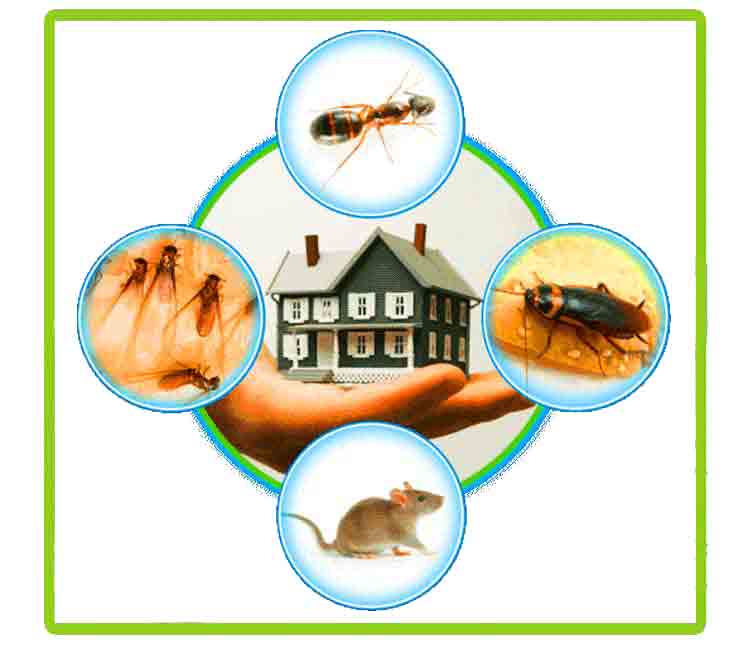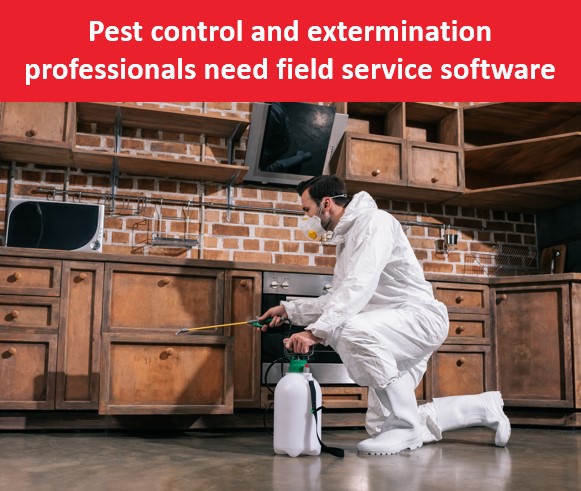Safe and Trusted Bug Control for Lasting Protection
Effective insect management requires a multifaceted method that balances ecological integrity with the need for effective pest suppression. The subtleties of these approaches might not be quickly clear, motivating a more detailed assessment of the methods that can lead to sustainable insect control outcomes.
Understanding Pest Control Approaches
Parasite control incorporates a range of techniques targeted at handling and getting rid of undesirable bugs and rodents that can threaten both wellness and residential or commercial property. Understanding these approaches is critical for efficient insect management.
The key classifications of insect control methods consist of mechanical, biological, and chemical methods. Mechanical techniques entail physical barriers and traps to avoid bug access and capture undesirable varieties. For circumstances, using displays on windows or using sticky traps can considerably reduce bug populations without presenting damaging substances.

Chemical pest control is typically one of the most identified method, using pesticides to get rid of parasites. These chemicals can be effective but should be utilized with care to stay clear of damaging results on non-target types and the setting.
Advantages of Eco-Friendly Solutions
Exactly how can eco-friendly options transform insect control methods? The adoption of environment-friendly parasite control approaches supplies numerous benefits, significantly boosting the effectiveness and security of insect management (exterminator coquitlam). To start with, these remedies use natural ingredients, reducing the reliance on hazardous chemicals that can pose dangers to human health and wellness and the atmosphere. This shift not only secures families and pets but likewise reduces the potential for dirt and water contamination.

One more benefit is the positive influence on neighborhood biodiversity. Environmentally friendly remedies are designed to target certain parasites while preserving helpful insects and wildlife, advertising a balanced environment. This approach aligns with the expanding customer need for sustainable methods, improving the online reputation of bug control companies.
Integrated Pest Monitoring Techniques
The application of environmentally friendly options normally brings about the adoption of Integrated Pest Management (IPM) techniques, which additionally improve bug control efficiency. IPM is an all natural strategy that incorporates numerous methods to take care of parasite populaces while decreasing ecological influence. This approach stresses the usage of organic, social, mechanical, and chemical controls, making certain a lasting and balanced method of pest management.
One fundamental aspect of IPM is the comprehensive assessment of bug activity and environmental problems. By checking parasite populaces and determining their life cycles, practitioners can implement targeted treatments that interrupt the insect's habitat or lifecycle, reducing dependence on chemical pesticides. In addition, social practices such as plant turning and habitat manipulation can significantly lessen bug establishment and recreation.
An additional important element is using organic control agents, such as beneficial pests or microorganisms, which can normally reduce pest populaces. When chemical applications are required, IPM focuses on making use of low-risk chemicals and applies them selectively, lessening exposure to non-target microorganisms and humans.
Including IPM techniques not just enhances parasite control efficiency yet likewise advertises a much safer ecosystem, lining up with the growing demand for lasting practices in parasite management.
Safe Practices for House Owners
Understanding the relevance of safe methods in parasite control can equip home owners to effectively handle pest issues while securing their health and wellness and the environment. Implementing safe techniques and safety nets is important in decreasing exposure to unsafe chemicals.
Homeowners must initially assess their environment for conditions that draw in bugs, go right here such as standing water, mess, and food waste. On a regular basis cleansing and securing entrance points can Go Here discourage insects from invading the home. Utilizing all-natural deterrents, such as essential oils or diatomaceous planet, can give effective alternatives to chemical pesticides.
When chemical therapies are essential, home owners must select items that are especially identified as risk-free for domestic use. It is important to adhere to application standards carefully to avoid too much exposure. Moreover, making use of targeted treatments in areas where insects are identified, as opposed to blanket splashing, can dramatically lower chemical use.
Lastly, preserving open communication with bug control specialists is important. Property owners should make inquiries about the security of items utilized and demand environment-friendly options whenever possible. By taking on these risk-free techniques, home owners can produce a much healthier living environment while successfully taking care of parasite issues.

Tips for Long-Term Defense
Establishing an insect monitoring technique that highlights lasting protection can greatly improve the effectiveness of the safe techniques previously discussed. To achieve this, property owners ought to apply normal inspections of their residential property, concentrating on concealed locations such as attics, basements, and crawl spaces. Early detection of bug task is crucial in avoiding invasions from holding.
These techniques minimize attractants that draw insects into the home. Securing entrance factors, such as cracks around windows and doors, can properly obstruct potential parasite accessibility.
Landscape design ought to also be taken into consideration; maintaining plants trimmed and maintaining a range between vegetation and the home decreases hiding spots for insects. Making use of all-natural deterrents, such as crucial oils or diatomaceous planet, can even more discourage problems without considering rough chemicals.
Finally, collaborating with a specialist insect control solution for regular evaluations can give an additional layer of protection. These professionals can use tailored suggestions and advanced therapies, making sure that your home remains shielded versus pests in the long-term.
Verdict
Finally, dependable and check risk-free pest control needs a complex technique that emphasizes environmentally friendly approaches and incorporated pest monitoring. By carrying out natural deterrents, carrying out routine evaluations, and preserving proper cleanliness, homeowner can substantially reduce pest populations while securing beneficial bugs and the atmosphere. Cooperation with specialist pest control services improves the efficiency of these approaches, ensuring tailored services that offer enduring defense and assurance versus future infestations.
Effective insect administration needs a diverse technique that stabilizes environmental stability with the requirement for efficient bug reductions. The fostering of environment-friendly parasite control techniques offers numerous benefits, significantly enhancing the performance and safety and security of parasite monitoring.The implementation of environmentally friendly solutions naturally leads to the fostering of Integrated Parasite Administration (IPM) techniques, which better boost parasite control efficiency. exterminator coquitlam. By monitoring insect populations and recognizing their life cycles, experts can apply targeted treatments that interfere with the parasite's environment or lifecycle, decreasing reliance on chemical pesticides.In verdict, trustworthy and risk-free pest control requires a multifaceted technique that highlights environmentally friendly approaches and incorporated pest administration